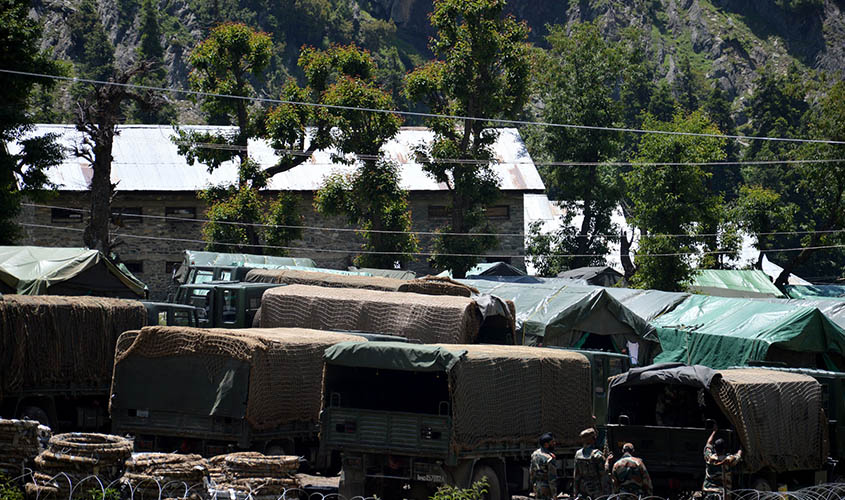The country has seen a considerable reduction in the number of terror attacks taking place in the first four years of the NDA government, compared to the situation in the years between 2009 and 2014, when the UPA 2 government was in power.
A perusal of the data by the Ministry of Home Affairs shows that there were as many as 19 incidents of terrorist attacks in the hinterlands between 2009 and 2014. While four such attacks took place from 2015—Gurdaspur (2015), Kokrajhar attacks in 2016 and Bhopal-Ujjain passenger train bombing and Amarnath yatra attack in 2017.
Some of the major incidents between 2009 and 2014, which are still etched in people’s memory, include the bomb blast at Margao, Goa (2009); the blast at Pune’s German Bakery, at Delhi’s Mehrauli, at Bengaluru cricket stadium, the firing/blast near Delhi’s Jama Masjid, the bomb blast at Sheetla ghat, Varanasi (all 2010); bomb blast near Delhi High Court parking, serial bomb blasts in Mumbai, bomb blast near Delhi HC, blast in Agra (all 2011); terror attack on Israeli embassy car, serial blasts in Pune (2012); twin blasts in Hyderabad, blast in Bengaluru, blasts in Bodh Gaya, serial blasts in Patna (all 2013).
The situation has improved considerably, and, according to internal security experts, the atmosphere is “much more peaceful”. In 2014, there were three incidents—a blast in a train in Chennai, bomb blast in Burdwan in West Bengal and an IED blast in Bengaluru.
Though the country did not witness any major incidents in the hinterlands from 2015 onwards, there were a few terrorist attacks along the border areas. In July 2015, a terror attack took place at Dinanagar (Gurdaspur, Punjab) in which seven persons were killed and 10 others injured.
In January 2016, a similar terror attack took place at the Pathankot Air Force station, where terrorists from Pakistan infiltrated the airbase. Seven security personnel and one civilian were killed in the incident and 37 other security personnel and one civilian were injured. Another attack on an Army camp in the border areas of Uri killed 20 persons.
The number of Maoist/Naxalite (left wing extremism) attacks has also come down considerably in the last few years due to increased offensive against the extremists and developmental activities in Maoist-affected areas.
However, violence continues unabated in Jammu & Kashmir, with as many as 72 civilians killed in the last three years, between 2015 and 2017 in the state in terrorist incidents.
Replying to a question in the Lok Sabha, Minister of State for Home, Hansraj Ahir said the overall internal security situation is under control, courtesy the concerted efforts being made by Central and the state governments. “The Central government is supplementing the efforts of the state governments to deal with terrorist groups in a coordinated manner, which includes sharing of intelligence, financial assistance for strengthening of the state police forces and intelligence agencies,” he said.
According to Amit Mukherjee, an expert at International Strategic & Security Studies Program, School of Conflict and Security Studies of Bengaluru-based National Institute of Advanced Studies, coercive diplomacy and pro-active counter-terror mechanisms have shown India’s intent of making low intensity conflict, eventually run out as a policy option for Pakistan, in the long run. “This is especially due to the cost to risk disparity. India’s present internal security situation has benefited due to the current policy of being alert and proactive, rather than merely being reactive or passive,” he told The Sunday Guardian.
“India has shown resolve to take necessary action

